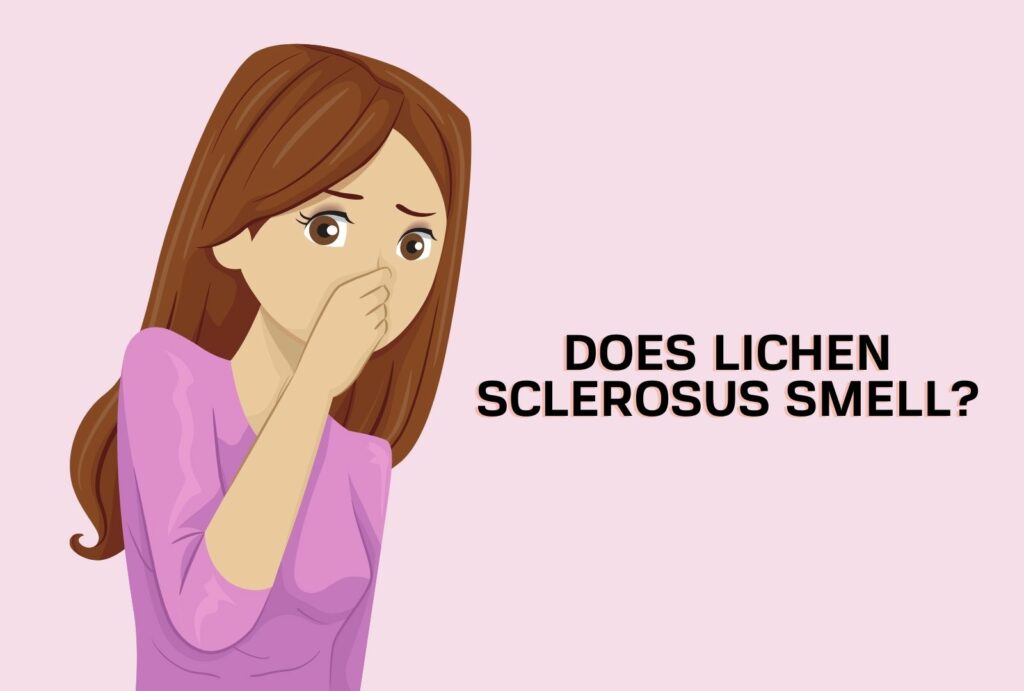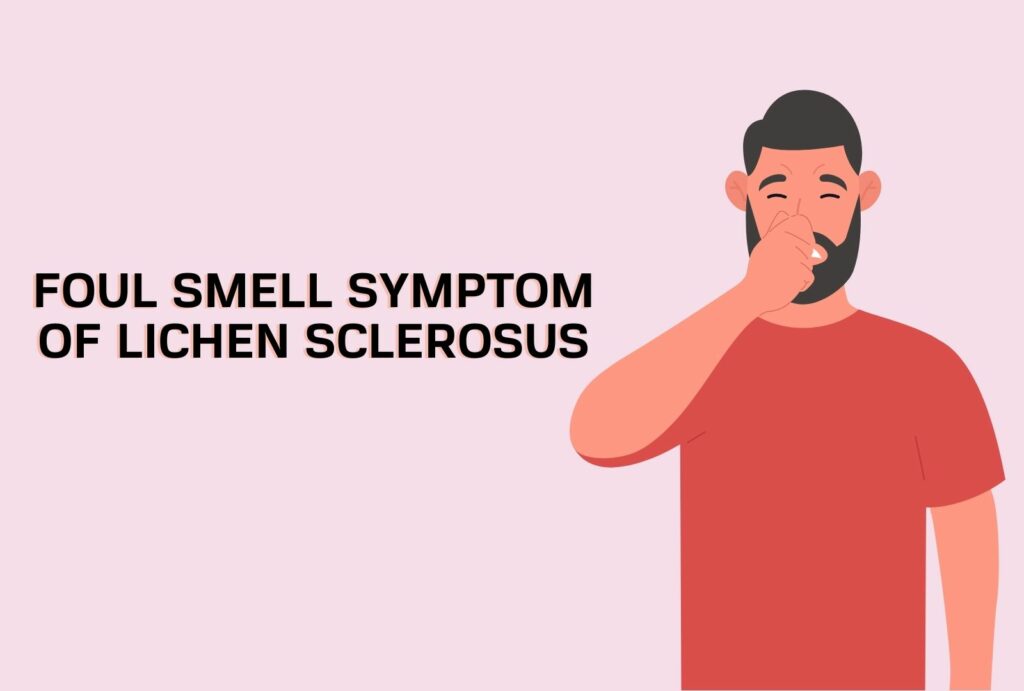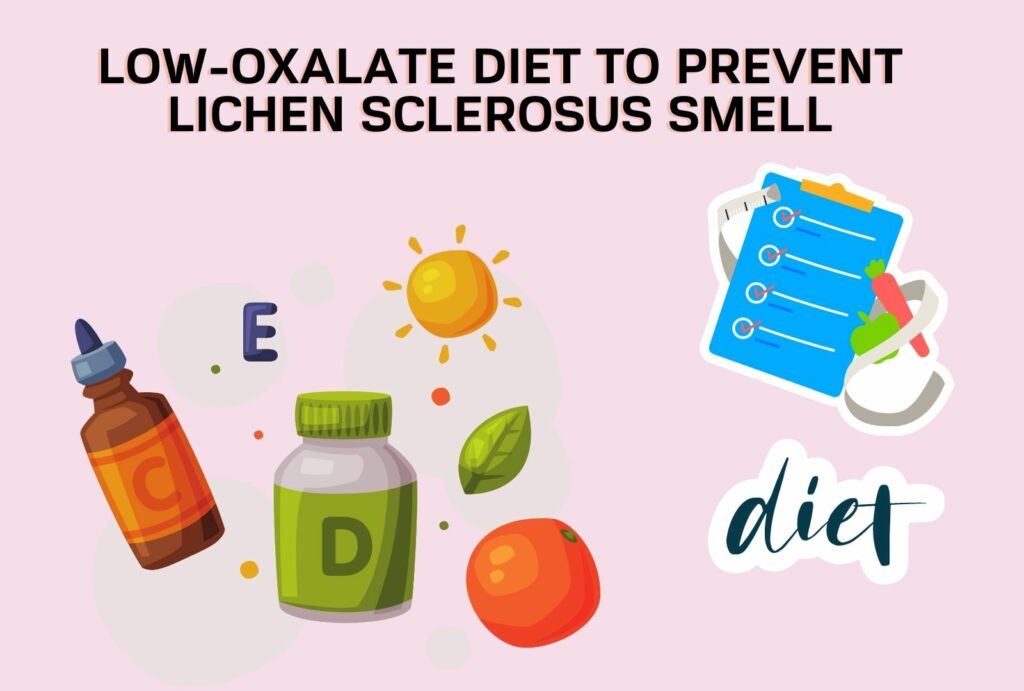
Lichen Sclerosus is a chronic autoimmune skin condition that primarily affects the genital and anal regions. This condition can cause uncomfortable and sometimes painful symptoms such as itching, burning, and soreness. But, one question that people with Lichen Sclerosus may ask is, “Does Lichen Sclerosus smell?”
Unpleasant odor
The answer to this question is that Lichen Sclerosus can cause an unpleasant odor, especially in the genital area. This is due to the inflammation and irritation that occurs with this condition, which can lead to an overgrowth of bacteria and yeast. These organisms can produce an odor that is difficult to ignore.
Hygiene
To address this issue, maintaining good hygiene is essential. It is essential to keep the affected area clean and dry. Wearing cotton underwear and loose-fitting clothing can also help reduce moisture, which can contribute to odor. Regularly washing the affected area with mild soap and water can also help to reduce the odor.
Dietary
It is also important to note that dietary changes can also help alleviate the symptoms of Lichen Sclerosus and reduce the unpleasant odor. Consuming a diet that is high in fiber and low in sugar can help reduce inflammation, which can reduce the overgrowth of bacteria and yeast. Drinking plenty of water can also help to flush out any toxins that may be contributing to the odor.
Medical treatments
In addition to dietary changes, there are also medical treatments available to help manage the symptoms of Lichen Sclerosus. Topical corticosteroid creams can be used to reduce inflammation and itching, while immunosuppressive medications may be used in severe cases. Additionally, laser therapy can help to reduce scarring and improve the appearance of the affected area.
In conclusion, Lichen Sclerosus can cause an unpleasant odor in the affected area. Maintaining good hygiene, making dietary changes, and seeking medical treatment can help to manage the symptoms of this condition and reduce the unpleasant odor. If you are experiencing any symptoms of Lichen Sclerosus, it is important to see a healthcare provider for proper diagnosis and treatment.
Lichen sclerosus symptoms
Lichen Sclerosus is a chronic autoimmune skin condition that primarily affects the genital and anal regions, but it can also appear in other parts of the body. It can affect anyone, regardless of age or gender, but it is most commonly found in postmenopausal women. Some people with Lichen Sclerosus may ask, “Does Lichen Sclerosus smell?” While it can cause an unpleasant odor, there are many other symptoms associated with this condition.
Itching
The most common symptom of Lichen Sclerosus is itching in the affected area. This can be mild or severe and may lead to discomfort and pain. Other symptoms may include white, patchy skin that is thinner than normal, which may also have a wrinkled or cracked appearance. This thinning can make the skin more prone to tearing, which can lead to bleeding and pain during intercourse.
Scarring
Lichen Sclerosus can also cause scarring, which can lead to changes in the appearance of the affected area. In women, it can cause the labia to shrink or fuse together, making it difficult to urinate or have sex. In men, it can cause the foreskin to tighten and make it difficult or impossible to retract. This scarring can also lead to discomfort and pain.
In addition to the physical symptoms, Lichen Sclerosus can also have a significant impact on a person’s mental health. The itching, pain, and changes in appearance can be distressing and embarrassing, which can lead to feelings of anxiety, depression, and low self-esteem.
Autoimmune disorder
The exact cause of Lichen Sclerosus is unknown, but it is thought to be an autoimmune disorder. It may also be influenced by hormonal imbalances and genetic factors. Certain medications, such as those used to treat high blood pressure or high cholesterol, may also be a risk factor for developing Lichen Sclerosus.
Chronic autoimmune
In conclusion, Lichen Sclerosus is a chronic autoimmune skin condition that can cause a range of symptoms, including itching, scarring, and changes in the appearance of the affected area. While it can also cause an unpleasant odor, there are many other symptoms associated with this condition that can have a significant impact on a person’s quality of life. If you are experiencing any symptoms of Lichen Sclerosus, it is important to see a healthcare provider for proper diagnosis and treatment.
Foul smell symptom of lichen sclerosus

Lichen Sclerosus is a chronic autoimmune skin condition that primarily affects the genital and anal regions. One of the symptoms associated with this condition is a foul smell. While not everyone with Lichen Sclerosus experiences this symptom, it can be a distressing and embarrassing problem for those who do.
The foul smell associated with Lichen Sclerosus is often caused by the overgrowth of bacteria and yeast in the affected area. This can occur due to the inflammation and irritation that occurs with this condition, which can create a moist environment that is conducive to bacterial and fungal growth.
Maintaining good hygiene is essential for managing the foul smell associated with Lichen Sclerosus. It is important to keep the affected area clean and dry, and to avoid using harsh soaps or perfumed products that can irritate the skin. Wearing loose-fitting clothing made from breathable fabrics, such as cotton, can also help to reduce moisture, which can contribute to the growth of bacteria and fungi.
In addition to good hygiene practices, making dietary changes can also help to reduce the foul smell associated with Lichen Sclerosus. Consuming a diet that is high in fiber and low in sugar can help to reduce inflammation, which can in turn reduce the overgrowth of bacteria and fungi. Drinking plenty of water can also help to flush out toxins that may be contributing to the smell.
Medical treatment can also be beneficial for managing the foul smell associated with Lichen Sclerosus. Topical corticosteroid creams can be used to reduce inflammation and itching, while immunosuppressive medications may be used in severe cases. Additionally, laser therapy can help to reduce scarring and improve the appearance of the affected area.
In conclusion, the foul smell associated with Lichen Sclerosus can be distressing and embarrassing, but there are steps that can be taken to manage this symptom. Maintaining good hygiene, making dietary changes, and seeking medical treatment can all be beneficial for reducing the overgrowth of bacteria and fungi that can contribute to the foul smell. If you are experiencing any symptoms of Lichen Sclerosus, including foul smell, it is important to see a healthcare provider for proper diagnosis and treatment.
Low-oxalate diet to prevent lichen sclerosus smell

Lichen Sclerosus is a chronic autoimmune skin condition that primarily affects the genital and anal regions. One of the symptoms associated with this condition is a foul smell, which can be distressing and embarrassing for those who experience it. While good hygiene practices and medical treatment can help to manage this symptom, dietary changes may also be beneficial. Following a low-oxalate diet may help to reduce the smell associated with Lichen Sclerosus.
Oxalates are naturally occurring substances found in many plant-based foods, including spinach, rhubarb, and almonds. In people with Lichen Sclerosus, high levels of oxalates in the diet can contribute to the growth of bacteria and fungi in the affected area, which can lead to the foul smell.
Following a low-oxalate diet can help to reduce the amount of oxalates in the body, which can in turn reduce the growth of bacteria and fungi. Foods that are low in oxalates include lean proteins, such as chicken and fish, and non-starchy vegetables, such as broccoli and cauliflower. Low-oxalate fruits include apples, pears, and berries, while low-oxalate grains include rice, quinoa, and oats.
In addition to reducing the amount of oxalates in the diet, it is also important to maintain good hydration. Drinking plenty of water can help to flush out toxins from the body, which can reduce inflammation and promote healing. It is also important to avoid foods that are high in sugar and processed carbohydrates, as these can contribute to inflammation and the growth of bacteria and fungi.
While following a low-oxalate diet can be beneficial for reducing the foul smell associated with Lichen Sclerosus, it is important to work with a healthcare provider or registered dietitian to ensure that the diet is nutritionally balanced and meets individual needs. Additionally, dietary changes should be used in combination with other treatment options, such as good hygiene practices and medical treatment, for optimal management of Lichen Sclerosus.
In conclusion, following a low-oxalate diet can be beneficial for reducing the foul smell associated with Lichen Sclerosus. By reducing the amount of oxalates in the diet, it may be possible to reduce the growth of bacteria and fungi in the affected area, which can contribute to the smell. However, it is important to work with a healthcare provider or registered dietitian to ensure that the diet is nutritionally balanced and meets individual needs.
Other ways to reduce smell
Lichen Sclerosus is a chronic autoimmune skin condition that primarily affects the genital and anal regions. One of the symptoms associated with this condition is a foul smell, which can be distressing and embarrassing for those who experience it. While following a low-oxalate diet and maintaining good hygiene practices can help to reduce the smell, there are other ways to manage this symptom.
Natural remedies
One way to reduce the foul smell associated with Lichen Sclerosus is to use natural remedies, such as tea tree oil or apple cider vinegar. These remedies have antibacterial and antifungal properties, which can help to reduce the growth of bacteria and fungi in the affected area. However, it is important to dilute these remedies before use, as they can be harsh on the skin in their concentrated form.
Loose-fitting clothing
Wearing loose-fitting clothing made from breathable fabrics, such as cotton, can also help to reduce the smell associated with Lichen Sclerosus. This can help to reduce moisture in the affected area, which can create an environment that is conducive to the growth of bacteria and fungi. It is also important to avoid wearing tight clothing, such as leggings or jeans, as these can contribute to irritation and inflammation.
Reduce stress
Taking steps to reduce stress and promote relaxation can also be beneficial for managing the smell associated with Lichen Sclerosus. Stress can contribute to inflammation in the body, which can exacerbate the symptoms of this condition. Practicing relaxation techniques, such as deep breathing or meditation, can help to reduce stress and promote healing.
Surgery
In some cases, surgery may be necessary to manage the symptoms of Lichen Sclerosus, including the foul smell. Surgical procedures, such as vulvectomy or circumcision, may be recommended in severe cases, where other treatment options have been unsuccessful. However, these procedures are typically reserved for cases where the condition has progressed and is causing significant physical or emotional distress.
In conclusion, there are several ways to manage the foul smell associated with Lichen Sclerosus. Natural remedies, such as tea tree oil or apple cider vinegar, can be helpful for reducing the growth of bacteria and fungi, while wearing loose-fitting clothing and practicing relaxation techniques can help to reduce stress and inflammation. In severe cases, surgery may be necessary to manage the symptoms of this condition. It is important to work with a healthcare provider to develop a comprehensive treatment plan for Lichen Sclerosus, including management of the foul smell.
Tips for your diet
Maintaining a healthy diet is an important aspect of managing the symptoms of Lichen Sclerosus, including the foul smell associated with this condition. While following a low-oxalate diet can be beneficial, there are other dietary tips that can help to reduce inflammation and promote healing.
Anti-inflammatory foods
One dietary tip for managing Lichen Sclerosus is to focus on anti-inflammatory foods. These include fruits and vegetables, whole grains, lean protein, and healthy fats. Anti-inflammatory foods can help to reduce inflammation in the body, which can contribute to the symptoms of Lichen Sclerosus. It is also important to avoid foods that are high in sugar and processed foods, as these can contribute to inflammation.
Probiotic-rich foods
Another tip for managing the foul smell associated with Lichen Sclerosus is to increase your intake of probiotic-rich foods. Probiotics are beneficial bacteria that can help to promote a healthy balance of bacteria in the gut and on the skin. Probiotic-rich foods include yogurt, kefir, sauerkraut, kimchi, and kombucha. It is also important to avoid foods that can disrupt the balance of bacteria in the gut, such as antibiotics and processed foods.
Water
Drinking plenty of water is also important for managing Lichen Sclerosus. Water helps to flush toxins out of the body and can help to reduce inflammation. It is recommended that you drink at least eight glasses of water per day. You can also try drinking herbal teas, such as chamomile or ginger tea, which have anti-inflammatory properties.
Healthy diet
In addition to following a healthy diet, it is important to pay attention to any food sensitivities you may have. Food sensitivities can contribute to inflammation in the body, which can exacerbate the symptoms of Lichen Sclerosus, including the foul smell. Common food sensitivities include gluten, dairy, and soy. If you suspect you may have a food sensitivity, it is recommended that you work with a healthcare provider to identify and manage it.
In conclusion, maintaining a healthy diet is an important aspect of managing the symptoms of Lichen Sclerosus, including the foul smell. Focusing on anti-inflammatory foods, increasing your intake of probiotic-rich foods, drinking plenty of water, and paying attention to food sensitivities can all be helpful for reducing inflammation and promoting healing. It is important to work with a healthcare provider to develop a comprehensive treatment plan for Lichen Sclerosus, including dietary changes.